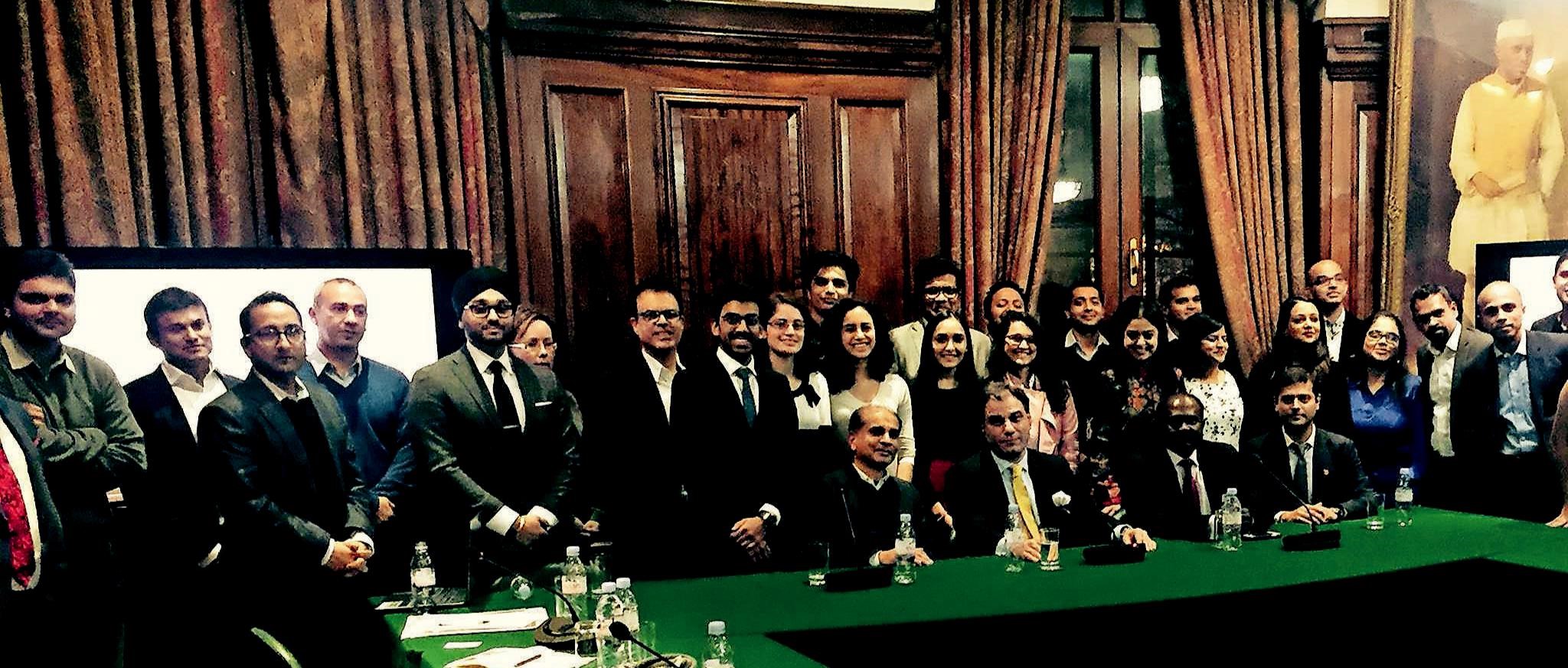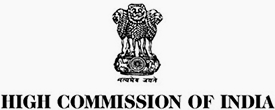 November 25, 2016
November 25, 2016 Panel Discussion on “What Brexit means for Indians in the UK ?”
On 25th November 2016, the High Commission of India hosted a panel discussion by IYPN (India UK Young Professionals Network) on the topic – “ Brexit: What it means for India and Indians in the UK”. The panelists were Lord Karan Bilimoria, HE Dinesh Patnaik, acting High Commissioner of India and Prof Sunil Khilnani, Director, India Institute, Kings college. There were over 60 young professionals from fields of banking, law, technology, development, retail and art and culture.
The event began with a welcome by Mr A.S. Rajan, Minister Coordination, HCI followed by an update on IYPN activities by founder Manav Gupta highlighting the key objectives of this highly dynamic organisation. He said it was imperative to “CONNECT-ENGAGE-IMPACT” to stay relevant in the long run. The website was launched (www.iypn. co.uk) and new initiatives like WIN (Women Initiatives Network coffee mornings), IYPN tune-in series, IMPACT initiatives and pitch party were outlined by IYPN cofounder and art entrepreneur Arunima Kumar.
The panel discussion began with Mr Dinesh Patnaik highlighting key issues of im-migration and sovereignty that were drivers behind Brexit. India was embedded into the UK from being both a trading partner and having Indian companies based out of the UK. The process of invoking Article 50 and negotiations was going to be a slow process, but UK will maintain its edge in the long run.
Prof Khilnani began with saying that Brex-it was a turning point for the world bringing with it new challenges. While increase in income inequality was instrumental in both Brexit and Trump’s victory in US, Prof Khil-nani gave a more nuanced view where he said that globalisation was something that creat-ed the middle class in India by destroying the working class in the West. Looking inward was however not the solution as there were countries like Sweden that have embraced globalization and at the same time built one of the most egalitarian societies in the world. Having said that, India was likely to face a difficult task due to inward looking anti-globalization rhetoric. Lord Bilimoria took us through a history of UK and the transformation of London that he had witnessed since he came here as a student 35 years ago. While India was in a similar boat back in the late 80s, globalisation has greatly benefitted both nations. His view was that Brexit was driven by mis-information and those that voted for Brexit are likely to be the biggest losers in this. With an unemployment rate of 5%, the UK needs the immigration to sustain itself and arguments about immigrants taking lo-cal jobs are just unfounded. To question of rising income inequality, he made the point that the UK has a public expenditure of close to 50% of GDP, which enabled high level of income redistribution. He also highlighted that to support that level of government ex-penditure it was essential the economy cre-ated sufficient wealth.
The discussion was followed by Q&A. Overall the session was very informative and provided diverse views on Brexit, right from the politics behind it to the very practical implications and the longer term under cur-rents that one needs to bear in mind.
You can see the photos on the High Commission of India’s Facebook page here.




